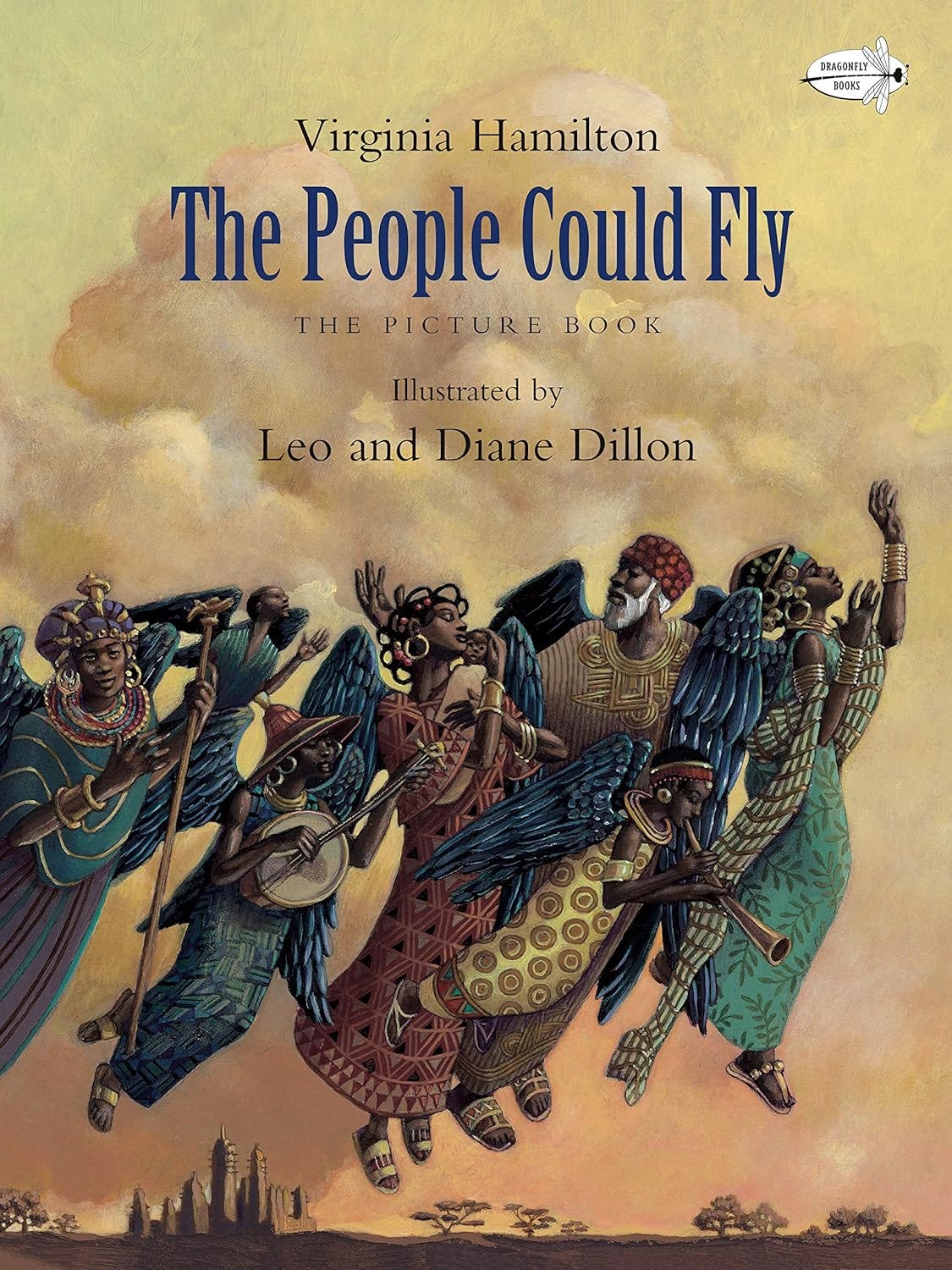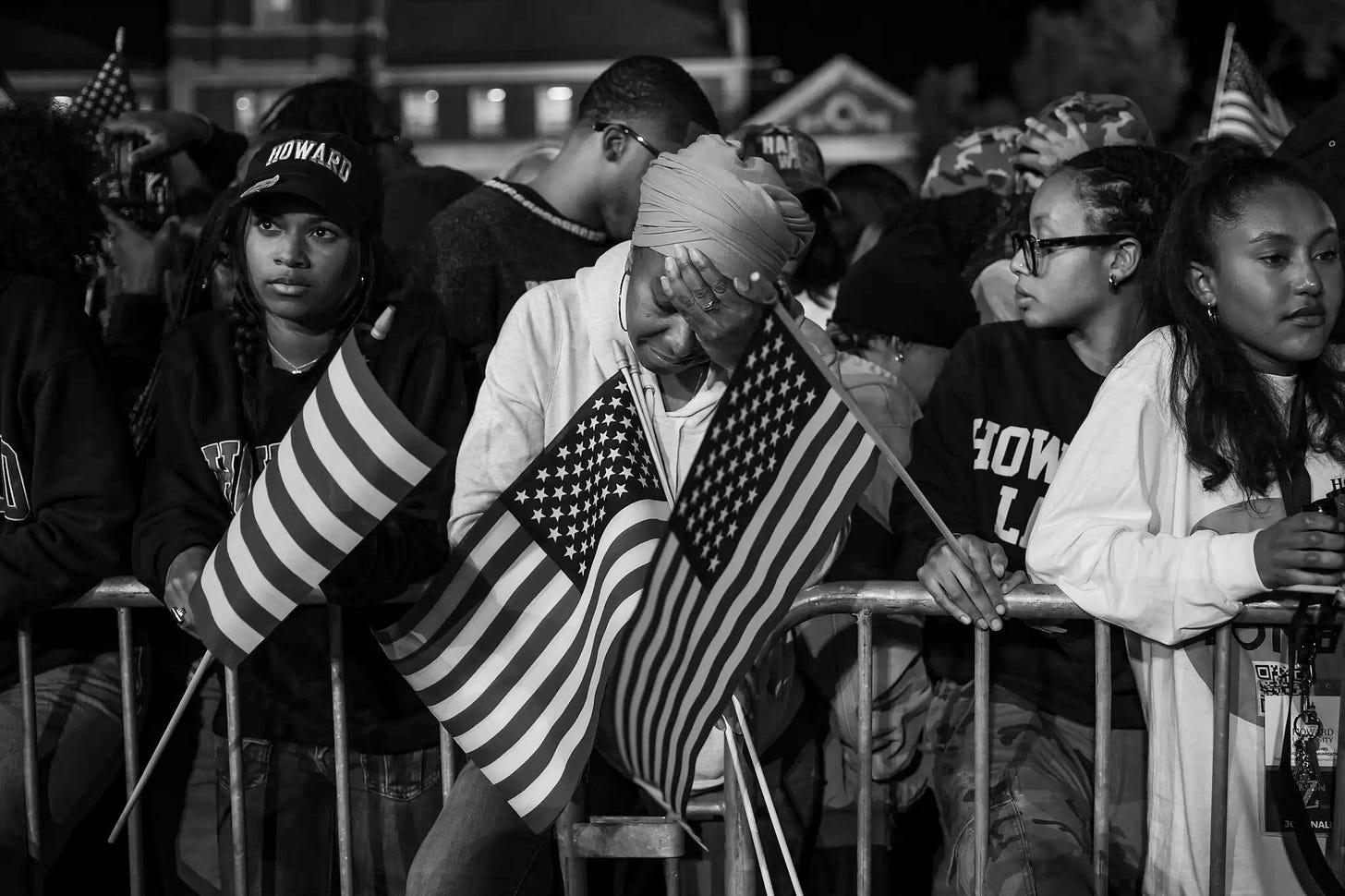Experiencing ‘Blackbird’, by Katie Kapurch and Jon Marc Smith, part 2
The Blackbirds crying in the dead of the night.
This is part two in a review series about
‘Blackbird – How black musicians sang The Beatles into being—and sang back to them ever after’
by Katie Kapurch and Jon Marc Smith, released pre-Christmas 2023.
I love reading rich texts. A story a day. Non-fiction stimulates me to search for new stuff, to compare, to refute, to understand, and to get my own perspective. With The Beatles, this gets even better. I am a sucker for footnotes, end notes, and bibliographies. After reading only a few paragraphs, I may find myself busy researching the lead footnotes and the bibliography offer.1 For my review of the book ‘Blackbird’, I check online libraries looking for books and other sources about African-American folktales from the time of slavery, and the metaphors used. One book or just one article is not good enough. We better never rely on one story for a reliable portrait of events or phenomena. Shape your image and idea of works of art and events by accessing different sources. These can also be media sources. Checking all the references Kapurch and Smith use, and then digging deeper is an arduous task like a marathon novice trying to catch up with an Eastern African professional marathon runner. Well, it is fun and I am learning a lot, as time and again I pull out a golden nugget, for this Kapurch and Smith can only be complimented.
.
This week the golden nugget was an old forgotten book. To my delight, I found ‘The People Could Fly’2 by Virginia Hamilton in a dusty old box. I can picture myself sitting on the bed, feeling the worn-out book in my hands, entertaining the kids before they fall asleep. I remember whispering and sighing the magic words
.
“Kum… yali, kum buba tambe”
.
The words of ancient Africa once heard are never remembered completely. Stories change over time, and magic words change.
.
“Kum kunka yali, kum… tambe!”
.
I also read them ‘Haroun & The Sea of Stories’.3 MPL should consider a graphic novelization of the song ‘Blackbird’.
The people in the Netherlands should acknowledge the disgusting history of our country as a former colonial power. A reality about murdering, rape, pilferage, and violent oppressive occupation. The territories included current Indonesia, islands in the Caribbeans, and Suriname. Over the last sixty years, hundreds of thousands of African immigrants came to the Netherlands, including, since the 1970s many from Suriname. We should not wonder about a backlash, especially as we deny them in schools, theater, tv, or in books the folktales from the past, which are an important part of their cultural roots.
Studying the selection of ‘African American Folktales, stories from black traditions in the new world’4 I found many stories that used the metaphor of birds and flying. In most of these stories, the outcome is quite different from the hope and support that Paul projects in his ‘Blackbird’ song. This folktale from the Bahamas tells the story of a ‘Blackbird’ who is shot by her husband, as she seems to be a real bird, a Carlin:
There was this man who had a son and married a second time, but what he didn’t know was that his new wife was really a garlin, or egret. Now every time she cooked him his peas and rice and meat, she would tell him she didn’t want any because she wasn’t feeling well. Then when her husband went out to work she turned back into a garlin and went out to the pond and caught crabs and ate her belly full, and made haste to come back home and return into a person before her husband came back. Each time, just as her husband left, she would go inside the bedroom and shed her clothes and begin to sing:
Kitty Katty kee wang wah,
Kitty Katty wang wah wah,
Kitty Katty kee wang wah,
Kitty Katty wang wah.
Kee bottom, kee bottom, kee pyang,
Kitty Katty kee wang wah, kee pyang.
Then two wings would come out. She would sing again:
Kitty Katty kee wang wah,
Kitty Katty wang wah wah, etc. ...
Her feathers would come out on her. She would sing again:
Kitty Katty kee wang wah,
Kitty Katty wang wah wah, etc. ...
A bill would come out. And then she would fly out the window and go to the pond and catch crabs.
Now the man’s son suspected his stepmother wasn’t a person, so he kept watch on her. One day he stayed home after his father had gone, and as he was watching, he heard her sing her song and saw her turn into a garlin again.
And when his father came back that night, the little boy said, “Poppa, this wife that you have isn’t really a person; she’s a garlin.” “What is that you say, boy? This couldn’t be.” “Yes, Poppa, she is a garlin. If you don’t believe me, keep watch on her like I did this morning when you leave for work.” And he described what had happened, and sang the song for his father
The next day the garlin-wife cooked her husband’s breakfast. He ate some, and so did the little boy, but she wouldn’t eat anything. Her husband asked her why, and she said, “I’m feeling sick. No, no, husband, I just can’t eat anything this morning.” Her husband went and got his gun, loaded it up and he began to sing:
Kitty Katty kee wang wah,
Kitty Katty wang wah wah, etc...
Now as he sang that song she burst out crying, “Don’t, husband, don’t sing that. Every time you sing that song, it makes me remember my dead mother.” She knew if he kept going, she would turn into a bird right in front of him, but he sang it anyhow.
First time, though, her legs came out, and the second time it was her wings:
Kitty Katty kee wang wah,
Kitty Katty wang wah wah,
Kitty Katty kee wang wah,
Kitty Katty wang wah.
Kee bottom, kee bottom, kee pyang,
Kitty Katty kee wang wah, kee pyang.
He sang it until her feet came out, her feathers, and then her bill. He took his gun then, and killed her.
.
.
Life was intense this week.
.
From my perspective, this week things changed quite a bit.
My body had a busy week on the road, going through the woods, the hills, and the fields, running, walking, and many hours working behind the desk.
My mind had a cruel time: the breaking up of the government in Germany, with the expected outcome of the very conservative-leaning Christian democrats coming back in full power. An election in the USA showed that a political majority of the people of the USA prefers to get drawn into a past that never existed, but reminds them of pre-covid times. Their choice shows the majority doesn’t care about decency, kindness, politeness, and expertise of essence in (political-) life, as a guide for our lives and government. A political leader embracing and stoking racism and sexism every night on stage throughout the country and getting attention from mainstream media inspires copycat behaviors. His campaign events were rife with bigotry and misogyny. The electorate must be kept in a state of agitation by permanently increasing divisions and fomenting unrest. To me, the party who does that, and that person individually is morally responsible for instigating a revival of acts of racism and sexism threatening female persons of color. They deserve no respect and should be held accountable by any means, legally and reasonably.
.
.
The outcome of the US election and the story of Macca’s ‘Blackbird’.
.
This election seems to have been about paranoid, polarized positions. It felt like an inevitable black-and-white choice. Female against male, black against white, conservative against forward-looking, ideology against the idea ‘for the people / by the people’, and a multiple-convicted felon against decency.
Paul McCartney gave the song ‘Blackbird’ a connotation of hope and support for ‘black women’ in their struggles at home (echoing ‘Lady Madonna’ (1968)) and for civil rights. To me, Kamala Harris never stood out as a symbol of civil disobedience, resistance, and progress. Mainly because of my cartoon-like impression of her as a person with an opportunistic career-enabling focus on San Francisco celebrities, plus her career from prosecutor to attorney-general.5 In this election cycle the emancipation of women of color was added to the mix of the economic well-being of the working class, working in international alliances, and the freedom of women to determine their reproductive rights, instead of the government or coalitions of obnoxious impertinent religious white Christians. Despite what I thought of her, as a candidate for President of the USA, Kamala Harris became a symbol for many girls and young women, but most of all for females of color. She showed that it is a viable option for them in their careers to break through the hardest bullet-proof glass that currently exists.
With the outcome they have lost another example, as the choice was for a man of no honor, a man who is a multiple-convicted felon, a woman abuser, a man who pronounced himself to be the protector of women, whether they like it or not, and extort dominance of females in social and private domains, inspiring young men to find their saving grace in out-of-time patriarchy, and to pick him as their favorite candidate.
In Western capitalist economies, the well-being of many people depends on the activities of workers without rights, without papers, doing the tasks others do not want to do, like working the fields and in slaughterhouses and living without proper housing or legal protections. Instead of lifting them up, the majority of the USA got seduced by an elitist GOP and a pussy-grabbing son of a gun, to knock down and spit on the weakest, and, why not, boot them out. They made voters believe they are worth more and better off, feeling stronger than immigrants and women.
Positive psychology is America’s drug to keep themselves happy despite all that bad shit that is going on, it keeps people quietly consuming, and not exerting their political powers.
One day we feel happy and have hope and a vision of liberation. The next day, faced with serious backlash, we believe the worst will happen. And it did. Soon after the elections on the 4th of November 2024, a wave of racist text messages summoning Black people to report for slavery showed up on phones across the United States. The messages arrived in the phones of middle school, high school and college students, addressing recipients by name, telling them they had been selected to “pick cotton” on a plantation and ordering them to show up at a specific time to be picked up by slave handlers. Some included a reference to the president-elect.6
Some of the actions announced by the orange big-headed short-dicked president-elect will indeed happen, and it will be like we’re living in a Philip K. Dick novel.
.
.
The Blackbirds will not sing for a while
.
Last week I quoted from the Foreword in the book ‘Blackbird’ Cyrus Cassells’s statement:
“in the visions of the formerly trammeled people, the still-moving and emoting blackbird remains a perennial figure of hope and liberation. The ubiquity of birds, especially black ones, in arts of the African diaspora goes back centuries.”7
In moments like these, I understand this is not a ‘formerly trammeled people’ (italics, by me). A majority in the USA choose again to trample over the weakest. Those with the least representation in the economic and political centers of power lost out again.
This photo says it all, don’t ever forget.
The GOP's conservative win and The Beatles come together in this image of devastation on the faces of these black women. With sadness in their eyes...
We cannot overstate the fear, pain, loss, and devastation that f#$%^& white racists from the GOP kept a candidate in the race and took complete control of Washington politics.
The Blackbirds will not sing for a while, and will not feel free... for now, there is disappointment and fear. Their mojo’s busted and they ain’t got no spare. For now, the hope for a better future is crushed. Again. When you go to bed, listen for the rain and Blackbirds crying in the dead of the night.
There is sadness in my heart.
America shows again its ugly but very real face:
It rather chooses a man convicted of 34 felonies, a man who prefers to spew lies and falsehoods, disparages women and people of color, and pledged to use the powers of the federal government to punish his political opponents rather than send a woman of color to the White House.8
Tomorrow we can think about the future again. We need wise black women to explain, and the young females who feel strong enough to come out and lead, to a better life.9 Maybe another day there is time again for Charlie Chaplin’s ‘Smile’.10
© 2024 The Beatles Review of History. The work of the original interviewers and publishers is gratefully acknowledged, and excerpts are reproduced on this site under allowances for fair use in copyright law. If anything on this blog constitutes an infringement on your copyright, please let us know, and we will consider removing the materials.
This is an Open Access article distributed in accordance with the Creative Commons Attribution Non-Commercial (CC BY-NC 4.0) license, which permits others to distribute, remix, adapt, and build upon this work non-commercially, and license their derivative works on different terms, provided the original work is properly cited and the use is non-commercial. See: http://creativecommons.org/licenses/by-nc/4.0/
.
Many texts in The Beatles discourse are labeled as non-fiction or documentaries. However, what you get is a novel using historical facts. Objectivity based on facts. It is a dangerous delusional assumption. We don’t need brainless encyclopedists, who deny they are eliciting facts depending on the larger narrative their culture holds them in a firm grip. Werner Herzog recently said in an interview:
“No matter how many facts you check, they’re still embedded in a larger narrative that’s loaded with Western propaganda. You’re just as stuck in an echo chamber as the Russians are, or the Chinese are, or the Israelis are.”
We need imagination too. You are welcome to make things up, just make it truthful. For great storytelling, the writing should be meticulous. A story should have so much detail and yet offer the reader space to play around with them. The scenes are right. And yet they are not fitting. The author should impart the atmosphere and paint the personalities right. ‘The man who gave the Beatles away’(1975) an old ‘over-the-top’ story in The Beatles historiography does all that. Even in 2024, this is still an attractive story. I re-read it every four or five years. Something similar goes for the articles on The Beatles by journalists Maureen Cleave and Ray Connolly. As journalists with a good attitude, their writings are much closer to the truth, their focus on the human side of the story offers great storytelling.
- Williams, Allan, and Marshall, William (1975). The man who gave The Beatles away. Elm Tree Books. ISBN: 9780241892046. Hardcover.
- Wals, Angela (2024). Werner Herzog: ‘Ik ben ervan overtuigd dat mijn proza en poëzie mijn films zullen overleven, ik wéét het’. De Volkskrant, November 7, 2024. Assessed November 2024: https://www.volkskrant.nl/volkskrant-magazine/werner-herzog-ik-ben-ervan-overtuigd-dat-mijn-proza-en-poezie-mijn-films-zullen-overleven-ik-weet-het~b20603cd/. Online.
Hamilton, Virginia (text) and Dillon, Leo and Diane (illustrations) (1985/2004). The people could fly, the picture book. Alfred A. Knopf. ISBN: 978-0-553-50781-2. e-Book.
Rushdie, Salman (1990). Haroun and The Sea of Stories. Penguin. ISBN: 9780140142235.
Abrahams, Roger (editor) (1985/1999). African American Folktales: Stories from Black Traditions in the New World. The Pantheon Fairy Tale and Folklore Library. eISBN: 978-0-307-80318-4.
For fans of The Beatles, a slightly off analogy could be George Martin. “He was working class all the way (...) The person who greeted the London record business some twenty-four years later would sport a pleasingly posh accent, his upbringing was decidedly blue collar.”
- Womack, Kenneth (2017). Maximum volume. The life of Beatles producer George Martin, the early years: 1926–1966. 'Chicago Review Press Inc. ISBN: 978-1-61373-192-5. Epub.
Balk, Tim and Green, Erica L. (2024). Wave of Racist Texts After Election Prompts F.B.I.’s Scrutiny. The New York Times, November 8, 2024. Assessed November 2024: https://www.nytimes.com/2024/11/07/us/politics/a-wave-of-racist-texts-after-the-election-prompts-the-scrutiny-of-the-fbi.html. Online.
Geurtsen, Robert (2024). Reviewing Blackbird – How black musicians sang The Beatles into being—and sang back to them ever after, part 1. ‘Ray Charles in Newport 1958. On ‘The Beatles Review of History’, November 01, 2024. Assessed November 2024: https://robgeurtsenyahoomail.substack.com/p/reviewing-blackbird-how-black-musicians. Online.
Green, Erica L. and King, Maya (2024). For Black Women, ‘America Has Revealed to Us Her True Self’. In The New York Times, November 7, 2024. In print on November 8, 2024, of the New York edition with the headline: For Black Women, Harris Loss Only Affirms Their Worst Fears. Assessed November 2024: https://www.nytimes.com/2024/11/07/us/politics/harris-black-women.html. Online
McMillan Cottom, Tressie (2024). The Way Harris Lost Will Be Her Legacy. The New York Times, November 6, 2024. Assessed November 2024: https://www.nytimes.com/2024/11/06/opinion/why-kamala-harris-lost.html. Online.
From Charliechaplin.com. ‘Smile Lyrics’ from the movie ‘Modern Times’. Assessed November 2014: https://www.charliechaplin.com/en/articles/42-Smile-Lyrics. Online.






